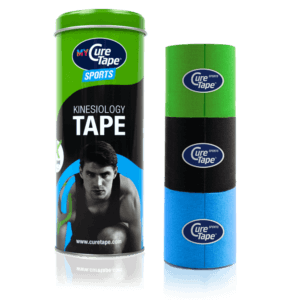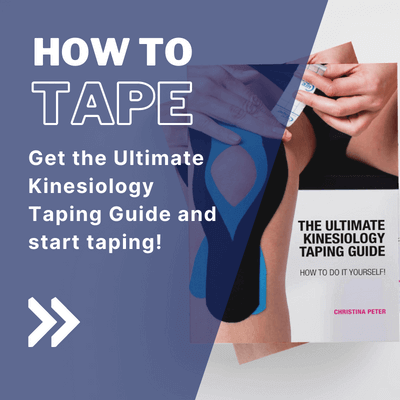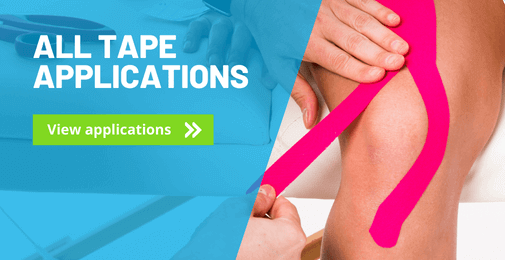Our feet are our daily means of transport and are constantly exposed to high loads. If they are overloaded or subjected to incorrect loads, pain in the sole of the foot may occur. Excessive strain can lead to inflammation of the tendon plate under the foot. This tendon plate runs from the heel to the base of the toe and supports the foot arch. As a rule, the symptoms occur in the morning after getting up and after prolonged exertion. Usually, one feels a nagging pain in the heel area, which may radiate to the toes. Sometimes the area is also very sensitive to pressure. The tape application allows the sole of the foot to relax and thus relieves the pain. Should the pain persist for a longer period, you should consult a professional therapist who might, for example, suggest that you have insoles made.
How to tape the bottom of your foot
Tips for a good foot taping application:
- Is the cause of the complaint or pain clear?
- Check if there any contraindications for not taping.
- Before you start taping, carefully read the instructions.
- Choose a colour of tape, any colour that fits your mood!
- Round of all the edges to prevent peeling.
- Do not stretch the tape at the beginning and the end.
- Rub the tape well for adhesion. Heat activates the adhesive layer.
- Showering or swimming is possible, pat the tape dry after it gets wet. Do not rub it hard.
- It is easier to remove the tape with body or massage oil.

Christina’s advice when taping your foot
In the self-taping instructions, I have chosen taping applications that are easy to apply yourself. In order to make this treatment safe, I give practical tips, which you should take into account before, during and after a tape treatment. They are based on my years of practical experience. If the complaints persist, always consult a therapist or doctor.
Instruction
Tape
Shape:Y-Tape.
Number of strips: 1.
Technique: muscle technique (slight pull).
Measuring and cutting the tape
Step 1:
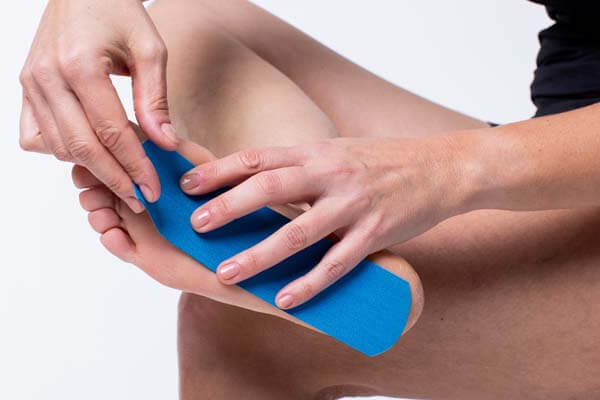
Step 2:
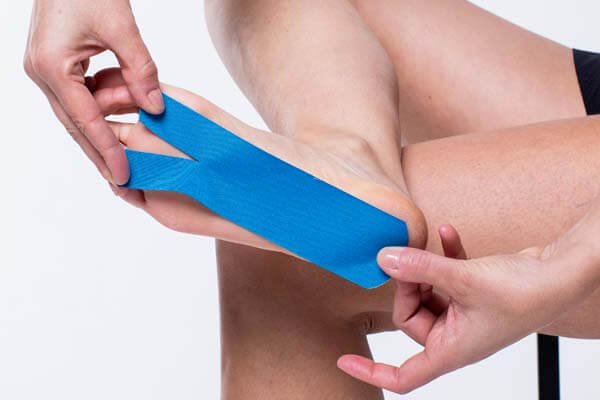
- Sit on a chair and place the sore foot over the other leg. Measure the required length of tape from the back of the heel to the ball of the foot.
- Cut the tape at one end about 5 cm so that you get two strips.
Applying the tape
Step 1:
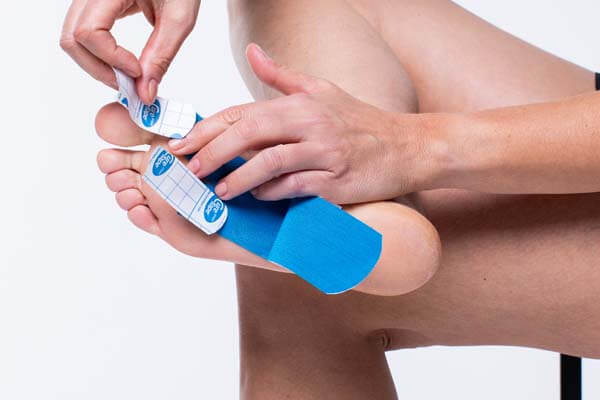
Step 2:
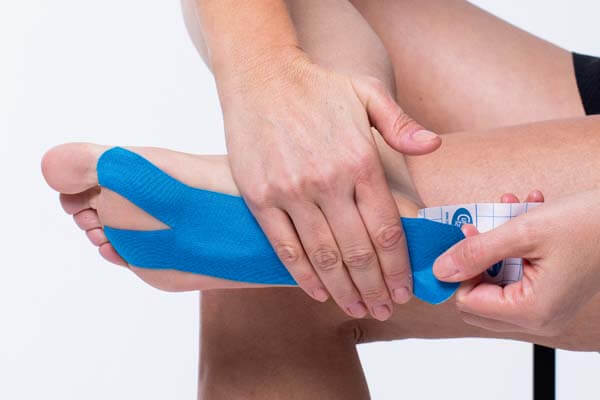
Step 3:
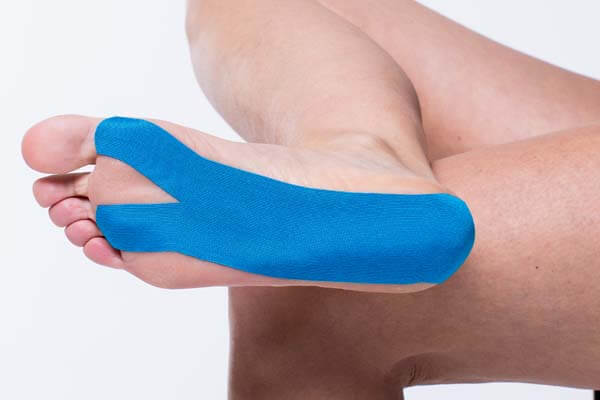
- Tear the release paper under the two ends, remove the paper and place the two tapes – the base – in the direction of the ball of the big toe and the little toe. Apply gently.
- Pull toes towards you and apply the tape with a slight stretch to the bottom of the foot towards the heel.
- Finally, gently rub the tape in place.
Popular products to tape your foot
-
MYCureTape® – 3 Rolls Kinesiology Tape – Value Pack
 $26.95
In stockSelect options This product has multiple variants. The options may be chosen on the product page
$26.95
In stockSelect options This product has multiple variants. The options may be chosen on the product page -
Book: The Ultimate Kinesiology Taping Guide
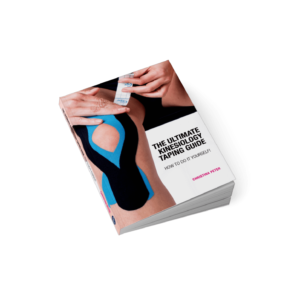 $29.95
In stockAdd to cart
$29.95
In stockAdd to cart -
CureTape® Ultimate Self-Tape Starter Kit
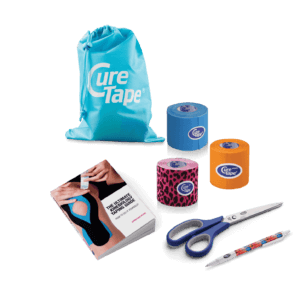 $87.95
In stockAdd to cart
$87.95
In stockAdd to cart
Learn how to tape
- 30 taping instructions for common injuries that taping can help you with
- 176 pages of clear written instructions
- 200 step-by-step instructions accompanied by photo’s, illustrations and scannable video’s through QR codes
What are you waiting for? Order your copy today!
*This book is intended for people who want to tape an injury or complaint themselves. If uncertain about the complaint, consult a physiotherapist.
THYSOL is the manufacturer of the kinesiology tape brand CureTape. As CureTape, we have been training and supplying professionals for almost 25 years. And consumers now know how to find us too! By manufacturing all our tapes in our own factory, we can guarantee the best quality!
Please note that the indicated tape applications and information on our website about the possibilities with kinesiology tape have not yet been scientifically proven. The statements and examples mentioned are based on long-term experiences of patients and trained therapists.
Contraindications not to tape: pregnancy, open wounds, broken bones, unexplained complaints, allergies and skin diseases, use of medication such as blood thinners, thrombosis and fever. Always apply tape in consultation with a specialist.

